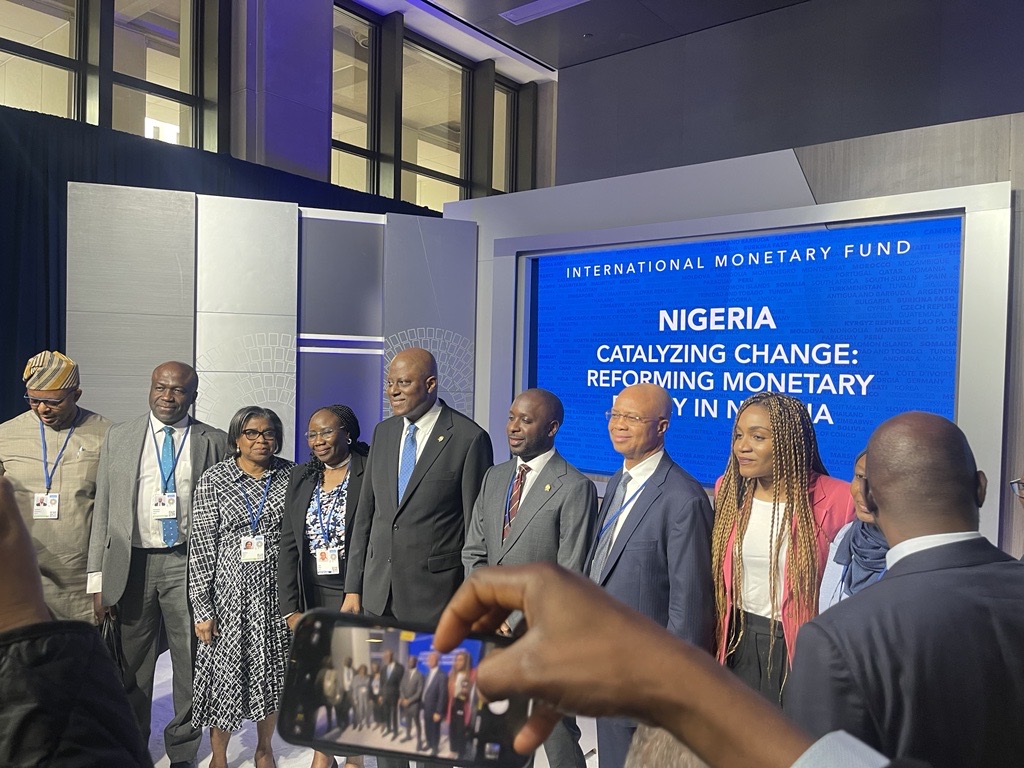The Governor of the Central Bank of Nigeria (CBN), Yemi Cardoso has addressed concerns over the declining external reserves, maintaining that the decline is not because the apex bank is defending naira.
Cardoso, further clarified that the decreasing foreign exchange (FX) reserves were primarily due to debt repayments and other standard financial obligations, rather than efforts to defend the naira. .
He also stated that there were no future intentions to defend the currency with the external reserves, as it was counterintuitive since the apex bank was already implementing a willing buyer, willing seller policy.
- “The shift you see in our reserves has little or nothing to do with defending any naira and that is certainly not our objective.”
Impact of Debt Repayments on Reserves
Governor Cardoso explained that the significant reduction in Nigeria’s external reserves is largely influenced by the country’s need to fulfil its debt obligations.
This financial activity is a routine practice essential for maintaining national credibility in the global financial arena.
The CBN boss noted:
- “What you see with respect to the shifts in our reserves is the shift you will find in any country’s reserve situation where for example debts are due and certain payments need to be made and they are made because that it also part of keeping your credibility intact.”
Nigeria faces significant external debt service requirements, including payments on Eurobonds and other international financial obligations. The repayments of these debts require substantial amounts of foreign currency, further draining the reserves.
While there is yet to be fresh data for Q1 2024 on Nigeria’s external debt servicing, Nigeria spent about 50% of its dollar payments to service external debts between January and October 2023, a significant portion underscoring the growing burden of foreign debt on the nation’s economy.
Also, Nigeria’s expenditure on external debt servicing soared to $560 million in January 2024, marking a 339% hike compared to the previous year’s $112 million.
Willing Buyer, Willing Seller Policy
Reaffirming the central bank’s commitment to a market-driven approach, the Governor highlighted that the CBN advocates for currency prices to be determined by willing buyers and sellers, without direct intervention from the bank.
This policy aligns with the bank’s broader philosophy of minimal interference.
Cardoso said:
- “If you think back to what our overall policy and philosophy has been here, you can see it is counter intuitive. Basically, what we are encouraging for the market is willing-buyer willing-seller price discovery. Ultimately, I perceive a future where central bank will really not need to intervene except in very very unusual circumstances.”
Interventions to BDCs minimal
Cardoso also touched on the initial interventions in the bureau de change (BDC) segment, describing them as minimal and targeted to ensure its effective integration into the broader market.
Looking ahead, he expressed a vision where the central bank would rarely need to intervene in the currency market, except in very unusual circumstances.
He said:
- “I can understand that especially at the outset, there have been little cases where the bureau de change (BDC), there was a need to get that segment going. And small amount of money relatively has gone into that to catalyse that. And it is important not to keep them out of the mainstream. But in terms of intervention, that it is really not our attention at all.”
So far, the CBN has made three dollar sales to BDC, starting with selling $20,000 to each BDCS at the rate of N1,301/$.
By the second attempt, the bank reduced the allocation by 50% and sold FX at a rate of N1,251/$1. It recently had a sale of $10,000 to each BDC at a rate of N1,101/$1.
Fresh $600 million in two days
Additionally, Cardoso disclosed that the reserve account had seen an influx of approximately $600 million over the past two days, emphasizing that these movements were routine and not aimed at defending the naira.
- He said: “Between yesterday and today, we had about $600 million that came into the reserve account.”
- He also stressed that “What is important to us is that there is sufficient liquidity in the market. As long as we have a vibrant currency market, why do we need to intervene? We don’t need to.”
More Insights
- Nigeria’s foreign exchange (FX) reserves recently witnessed a significant downturn, plunging by approximately $2.16 billion in 29 days.
- Current figures from the CBN, as of April 15, 2024, reveal that the FX reserves are now positioned at $32.29 billion, a stark decline from $34.45 billion recorded on March 18, 2024. Nigeria’s foreign exchange reserves plummeted to the lowest level since September 25, 2017, when the reserves were $32.28 billion.
- The depletion of FX reserves is a cause for concern as it reflects the state of the country’s balance of payments and its ability to meet international obligations.
- A significant decline in the reserves can affect investor confidence and may lead to a credit rating downgrade, which can further impact the nation’s borrowing costs. Already, the World Bank said Nigeria has a weak credit rating for sovereign bonds.
- The International Monetary Fund (IMF) recently projected that Nigeria’s foreign reserves are expected to see a significant reduction, falling to $24 billion in 2024.
- The IMF anticipates a challenging period through 2024–25 for Nigeria’s financial account, exacerbated by an absence of new Eurobond issuances, significant repayments of existing funds and Eurobonds totalling $3.5 billion, and continued portfolio outflows.
- However, it projected a hopeful recovery to $38 billion by 2028 as portfolio inflows are forecasted to increase.
